Search
Remove Ads
Advertisement
Summary 
Loading AI-generated summary based on World History Encyclopedia articles ...
Search Results
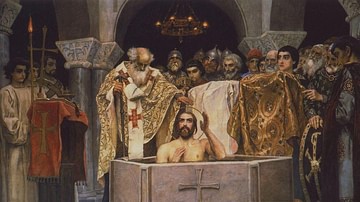
Definition
The Medieval Church
Religious practice in medieval Europe (c. 476-1500) was dominated and informed by the Catholic Church. The majority of the population was Christian, and "Christian" at this time meant "Catholic" as there was initially no other form of that...
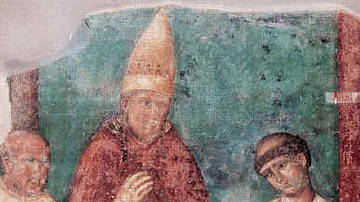
Article
Unam Sanctam: Spiritual Authority & the Medieval Church
The Unam Sanctam (1302) was a papal bull issued by Pope Boniface VIII (served 1294-1303) requiring the complete submission of all people, including kings, to the authority and dictates of the pope. As the Church was understood as holding...
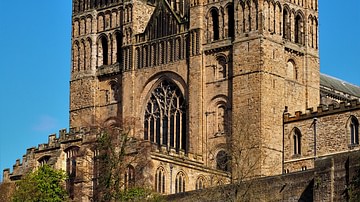
Article
Diversity in Church Architecture in Medieval England
Medieval English churches differed in size and layout. Their original and evolving role(s), financial and material resources, and architectural fashions helped determine variability. However, their look ultimately grew from a constant symbiosis...
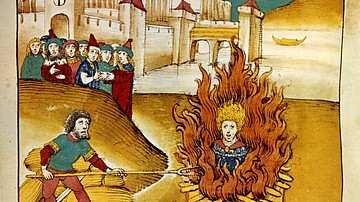
Article
Six Great Heresies of the Middle Ages
The medieval Church established its monopoly over the spiritual life of Europeans in the Early Middle Ages (c. 476-1000) and consolidated that power throughout the High Middle Ages (1000-1300) and Late Middle Ages (1300-1500). Along the way...
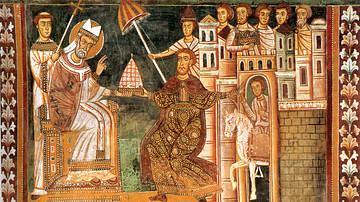
Definition
Donation of Constantine
The Donation of Constantine (Donatio Constantini or the Donatio) is a medieval forgery dated to the 8th century purporting to be an original 4th-century document in which the Roman emperor Constantine the Great (r. 306-337) granted supreme...
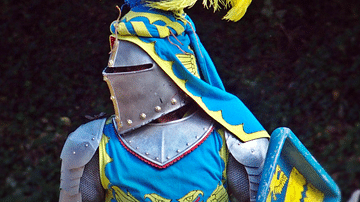
Definition
Medieval Knight
Knights were the most-feared and best-protected warriors on the medieval battlefield, while off it, they were amongst the most fashionably dressed and best-mannered members of society. To reach this elevated position, however, became more...
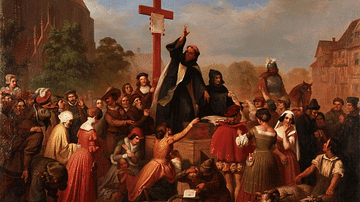
Article
Medieval Indulgence & Martin Luther
The medieval indulgence was a writ offered by the Church, for money, guaranteeing the remission of sin, and its abuse was the spark that inspired Martin Luther's 95 Theses. Luther (l. 1483-1546) claimed the sale of indulgences was unbiblical...
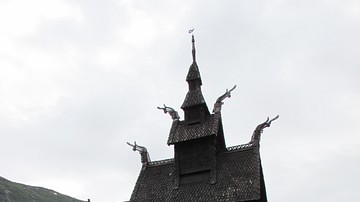
Article
Stave Churches: Norway’s National Treasures
Stave churches are the most famous medieval buildings in Norway and are admired for their unique architecture and beautiful decorations. They are named after the staves or masts that hold up the main structure of the church. Only 28 stave...
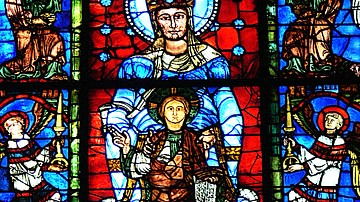
Article
Religion in the Middle Ages
Religion in the Middle Ages, though dominated by the Catholic Church, was far more varied than only orthodox Christianity. In the Early Middle Ages (c. 476-1000), long-established pagan beliefs and practices entwined with those of the new...
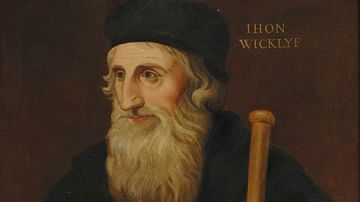
Definition
John Wycliffe
John Wycliffe (l. 1330-1384, also John Wyclif) was an English theologian, priest, and scholar, recognized as a forerunner to the Protestant Reformation in Europe. Wycliffe condemned the practices of the medieval Church, citing many of the...